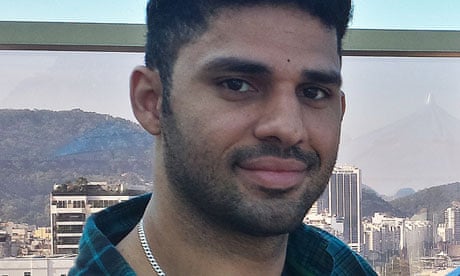Schedule 7 of the Terrorism Act 2000 is like a Ming vase, said David Anderson QC, the independent reviewer of terrorism legislation, in his annual report last month. "Senior ports officers are well aware not only of the value of the power, but of the fact that like all valuable things, it needs careful handling."
The simile was borrowed from his predecessor, Lord Carlile QC, and Anderson is proving just as robust as the Liberal Democrat peer in keeping the government in check.
Schedule 7 of the 2000 act allows travellers to be questioned in order to find out whether they appear to be terrorists. They have no right to remain silent or receive legal advice, and they may be detained for up to nine hours.
What's clear about the way in which this powerful legislation was used at Heathrow airport on Sunday to detail David Miranda, the partner of the Guardian journalist Glenn Greenwald, is that it received anything but careful handling.
Anderson's figures speak for themselves. Around 245 million passengers used UK ports, according to 2010/11 figures. In the year 2012/13, 61,145 people were stopped and examined under schedule 7, down by 30% on three years earlier. Of those who were stopped last year, only 2,277 were held for more than one hour. For the period April 2009 to March 2012, only 1.2% of those stopped were held for more than three hours.
Little surprise, then, that Theresa May has asked parliament to rein in these powers. Schedule 7 of the anti-social behaviour, crime and policing bill, which has completed its committee stage in the House of Commons, would cut the maximum period to six hours and introduce other safeguards.
Why, then, was Miranda detained for eight hours and 55 minutes before being released without charge? It is impossible to escape the conclusion that the power was used disproportionately and therefore inappropriately, despite Scotland Yard's protestations to the contrary.
The very fact that the home secretary is willing to shorten the detention period and increase safeguards for those being questioned suggests she realises she is vulnerable to challenge. As Anderson says in his annual report, "whether the power is proportionate in its current form is however a legitimate subject for both public debate and judicial scrutiny: for during 2012 and 2013, courts both in England and in Strasbourg have invited argument on the precise question of whether the exercise of the schedule 7 power is necessary in a democratic society".
What the government is not giving up is the most important power contained in schedule 7, to examine property and search anything the detained person has with them. Indeed, a late amendment to the bill currently before parliament would strengthen those powers by allowing examining officers to download the contents of mobile phones, laptops and other electronic devices, a practice of questionable lawfulness at present.
Miranda's electronic equipment was confiscated at Heathrow. We can assume that the contents of his phone, his computer, his camera and so on were of more interest to the authorities than anything he chose to say in interview. All the more reason, therefore, why he should have been released after these items were seized.
As Anderson made clear on BBC Radio 4's World at One, the fundamental question raised by schedule 7 is whether or not it should be possible for a police officer, immigration officer or customs officer to question and detain a traveller for any period at all "whether or not [the officer] has grounds for suspecting that [the traveller] … is or has been concerned in the commission, preparation or instigation of acts of terrorism".
On this issue, the home secretary is not prepared to budge. Anderson himself goes no further than saying it is an issue that should be the subject of wide public and parliamentary debate. "Apart from anything else, the fact that an informed political debate has taken place is a factor to which the courts – including particularly the European court – will attach considerable weight when determining whether it is appropriate for them to intervene."
The one good thing to emerge from Miranda's case is that it has provoked the debate that Anderson called for, even though it would be going too far to say that the heavy-handed actions of the authorities at Heathrow have now smashed the Ming vase that they were trying to protect.
In the US, the name Ernesto Miranda is associated with the warnings that must be given to suspects arrested by the police: that they have the right to an attorney and the right to remain silent when questioned. Ironically, those were the very rights denied to David Miranda in London.
